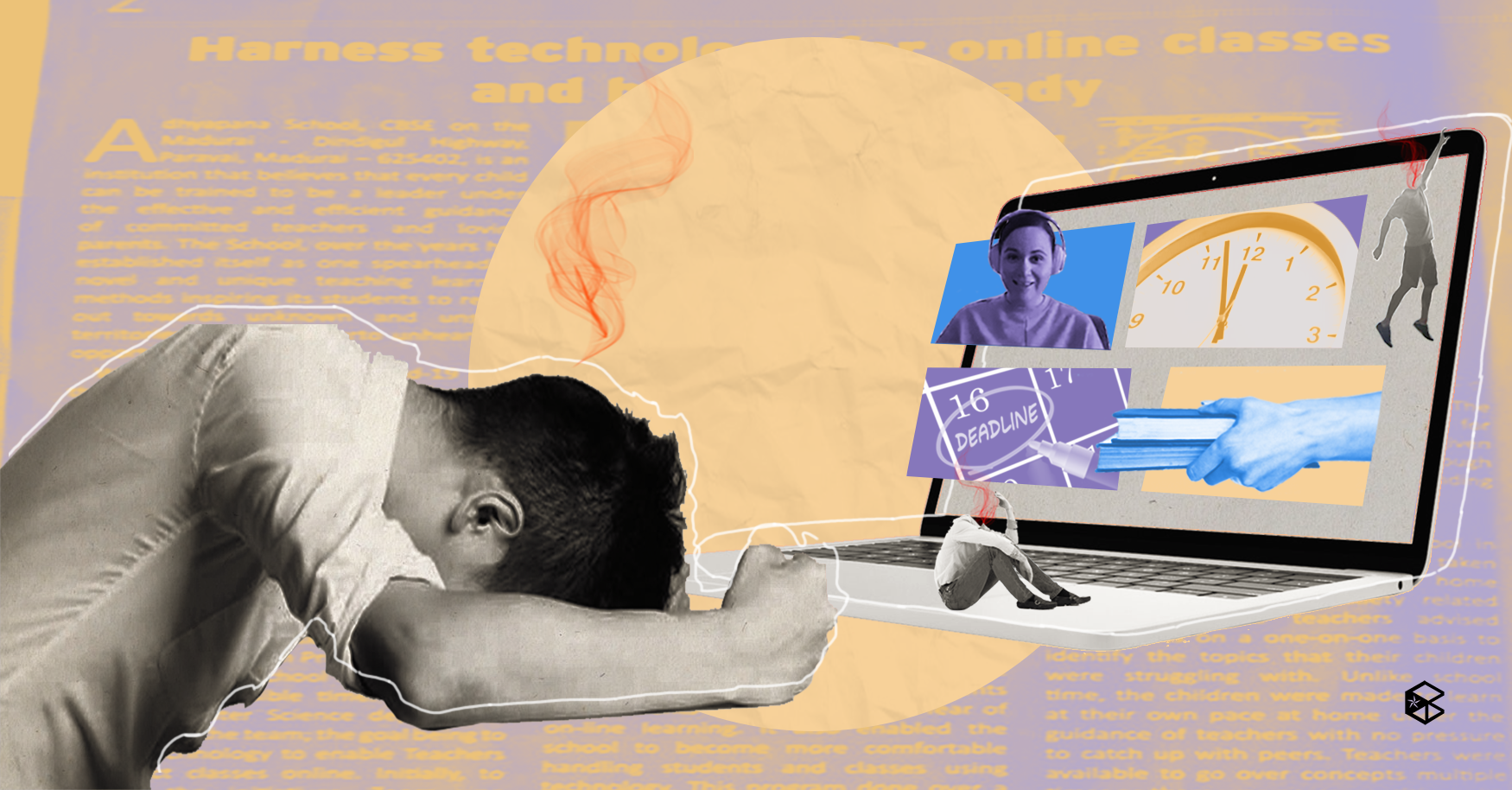Getting used to the online setup may be challenging. The current situation has affected the physical, mental, and emotional state of many, and as we take into account the causes and effects of online burnout, as well as insights and advice regarding the current online setup.
As the conclusion of the first online term finally draws near, the fatigue of three months extends to one whole academic year. Students, along with professors and associates, are struggling to cope with the stress that the online setup has brought, leading to burnout, or “Online Burnout” as some may call it.
Burning out
“Burnout” is defined by American-German psychologist Herbert Freudenberger as “the extinction of motivation or incentive, where one’s devotion to a cause or relationship fails to produce the desired results.” It is also interpreted as a “reaction to prolonged or chronic job stress.”
With the current setup, everyone is practically affected physically, mentally, and emotionally. Working from home, attending online classes, and the like, require many to be in front of their screens most of the time. Mr. Joshua Sanchez, a senior high school teacher at a private all-girls institution and a graduate student in Master of Arts Major in Philosophy at De La Salle University, shared his experience in balancing both remotely.
Attending online classes at both schools as a teacher in the morning and a student at night, he spends his time mostly in front of a screen for at least eight hours daily. His online endeavors have caused him joint pains at his young age.
“I get to be more easily irritated by things,” Mr. Sanchez expressed in an interview with The Benildean, explaining his mental health status as the online setup was established.
He admitted that he recently became more anxious to send email notifications and also noticed that he became more emotional and had difficulty sleeping.
Meanwhile, according to Mr. Neil Barnachea, Director of Benilde Well-Being Center (BWC) and a full-time counselor, staying on screen for most of the time has physiological and psychological effects. Blue light, which comes from the sun and man-made sources such as gadget screens, has an impact on brain functions.
He has noted from some of his students that adverse effects also cause sleep disturbance, to which he conducted an experiment with. He asked the students to take an hour off from their gadgets before going to sleep and to do more consciousness examinations such as thinking, analyzing, and reflecting. After around one month and two weeks, the students have reported that their sleeping quality has improved.
“Everyone is practically affected by this pandemic,” Mr. Barnachea shared. Most of the attributes such as anxiety, stress, and burnout, are caused by the pandemic’s factors such as the unstable internet connection, electricity, modes of communication, and people being used to the pre-pandemic environment.
Putting out the fire
As per Mr. Barnachea’s collected student reports, Benildeans also experience depression and anxiety, or burnout in general due to the current situation. With that, he advised to follow this certain process:
- Accept the current situation we are in and be aware.
- Adapt to our situation.
- Act productively.
However, there are also some coping mechanisms that Mr. Sanchez shared, coming from his personal experience as a teacher and student himself:
1. Communication
- This applies in and out of our workplace. It is really important to check in and talk with friends and family, or teachers and classmates.
2. Consideration
- To be in a trying situation, consideration is next to communication. Knowing one’s condition, it is also important to take consideration of whatever they may need for adjusting or coping.
3. Reflection
- It is also important to constantly check on one’s self. Figure out how we are doing, so it will be easier to navigate through this new normal.
4. Rest
- There may be times that we are not feeling well, and that’s okay. Let’s not force ourselves and have time for relaxation. Just take a rest.
With everything going on around us, exhaustion can sometimes be an understatement. Piles of deadlines and email notifications may still keep on coming.
So, from time to time, mute the notifications, turn down those gadgets, and start applying treatment to “burnt” areas.


